- Home
- Thomas H. Cook
Elena
Elena Read online
Elena
Thomas H. Cook
A MysteriousPress.com
Open Road Integrated Media ebook
For Ron Blackwell, Greg Bush,
Cliff Graubart, Norman and Mary Levine,
Janine and Richard Perry, and Susan Terner
New Yorkers
And for Gerard Van der Leun,
who kept his steady eye upon this text
When what we hoped for came to nothing, we revived.
—Marianne Moore
PROLOGUE
At the end of the room, the books were arranged in a tall pyramid on a long table. Elena’s face adorned the cover of each volume, giving the entire configuration an oddly shattered appearance, as in a cubist portrait, each facet at once secretive and revealing.
Jason Findley stood next to me, still tall and straight, not in the least stooped by age. His manner remained as thoroughly Arthurian as it had ever been, and when he moved, gently lifting his glass to Elena’s portrait, one could almost hear the soft creak of his armor.
“It’s the perfect picture for the book jacket,” he said.
“It will do,” I said. Actually, I thought it overly posed, for our unbuttoned age. Still, it did convey a sense of what my sister was like at forty-five, the luminous face against a field of black suggesting something self-sustained, formidable and grave.
“I didn’t expect to outlive her,” Jason said, his eyes still locked on the imposing tower of books that stood only a few yards from him.
I glanced about. The room was beginning to fill now. Publishing parties are often crowded, everyone wanting to see, be seen; everyone relishing the privilege of being among the scribblers, as if writers were the ones who made the world, as Elena herself once said, rather than the ones who simply marked it down.
Jason turned to me. “Have you read the book?”
“Of course. In galleys.”
“And?”
“It’s thorough enough,” I told him, “but it certainly won’t be the last biography of Elena.”
“No, I suspect not,” Jason said softly. “She was so … protean.” He smiled. “Whatever that means.” The serenity with which he now spoke of my sister sharply contrasted with the tumultuousness of their experience together — the early hope and later anguish.
I looked at the portrait once again. Elena’s face stared back at me from a hundred separate angles, her eyes frozen, utterly inanimate.
Of those present at this reception, only I could recall the first flashing of those eyes, the way they searched a room, always latching onto color, movement, any change of light. And I remembered how, later, they seemed to draw the world into them, filter it through her restless mind, then release it back to us, more ordered, perhaps a little tamed.
“Are you still living on the Cape?” Jason asked.
“Yes.”
“Beautiful up there.”
“Yes, it is.”
“That house on the bay,” Jason said. “We had some fine times, didn’t we? Planting that flower garden of Elena’s, remember?”
I could see the three of us struggling with that sandy, unforgiving soil, Elena with her battered hoe and Jason crouched on the ground, digging furiously with his spade.
“We had good times,” I said, remembering the bad.
For a time, Jason and I stood silently together. Then he spotted another old friend across the room and excused himself, walking away, his hand grasped tightly to a cane which appeared more hindrance than support. At that instant, he seemed to represent for me everything that totters toward its end — so different from Hart Crane diving over the rail of the Orizaba and into the sea, or Matthiessen climbing out the window of the Manger Hotel, figures in that loss which is as perilous to look upon as to avoid, and which, as Elena wrote, “is perfectly rendered, in all its protest and derision, by the first eleven words of Howl.”
From behind, I heard a stirring in the crowd. I turned and saw Martha Farrell, the author of Elena’s biography. She was beaming at the people gathered around her. This was her day, her party, her book. The polite applause was hers, as well as the brief esteem it represented. But there would be none of this, not the book, the author, or the celebration, without first the life, Elena’s.
Christina Waterman walked steadily beside Martha. She was in charge of Parnassus now, the inheritor of the legendary press her father had founded. Though dead now, Sam Waterman, Elena’s publisher, was alive in the decor of the room, its towering windows and overstuffed chairs. They were like the man himself, larger than one would expect, and more generous. Christina seemed little more than a mild liqueur after the banquet of her father.
“So happy you could be here, William,” she said as she stepped up and embraced me with one of those quick, glancing motions young women use on old men, dodging the smell of camphor. “I understand you wrote a very appreciative letter about the book.”
“Yes.”
“Very complimentary.”
“Martha worked hard. She deserves some credit.”
“Any compliment from you, William, is something I cherish,” Martha said as she joined us.
As a sentence, it worked rather like a swoon, one of those graceful dips women make in romantic novels when the masculine presence becomes too much for them. Perhaps there was a time when her inflated deference would have appealed to my vanity. But I am old now, and such remarks serve only to make me feel like a piece of crumbling statuary.
“Actually,” Christina said quickly, “I was thinking of using a couple of quotes from your letter as part of the promotion.” She eyed me cautiously. “Would you have any objection to that?”
“None.”
She smiled. “I don’t suppose it would be appropriate for you to review the book yourself?” she asked.
“I think not,” I told her. Oiling the motor is one thing; pushing the car is quite another. “It’ll be reviewed everywhere. Times. Front page, I’d say.”
“Oh yes, of course,” Christina said, “I’m sure of it.” She glanced at her watch. “We’d better get started,” she said to Martha.
The two of them bustled off to the front of the room, where a microphone stood like a thin, lonely guard before the table of books. Christina stepped up to it, and the crowd grew quiet and attentive.
“Everyone knows we’re gathered here today to honor one of the great literary figures of our time,” she said. A small burst of applause rose briefly, then drifted down like the last bits of confetti. Christina took one of the books from the table behind her and lifted it to the crowd. “It is entitled Elena Franklin: A Life,” she continued. “And that is what it is, the story of a great and honored life.” She smiled. “In Elena Franklin, there was nothing to debunk.”
No, I thought, nothing to debunk. Martha’s book was relentlessly thorough, monumentally detailed. But there was something missing still: I had read over six hundred pages about Elena Franklin, but had not, even for the briefest moment, felt the breath, heard the voice, sensed the heart, of my sister. And so it seemed to me that all of Martha’s labor had come to nothing, that Elena now lived imprisoned in a book, her soul flattened under page after airless page, and that some breeze should be called forth to sweep away this vast, accumulated dust, a small but feeling wind to set her free.
EARLY WORKS
The first thing I remember is how small she was, and I think now that part of what I always felt for Elena — wrongly felt — resided in this first impression of her smallness.
I had not been well for the last few days, and so I had not been permitted to accompany my father to Dr. Houston’s clinic to bring my mother home. My Aunt Harriet stayed with me, a large, sour woman, who moved ponderously under her black floor-length dress. Her life had been bedeviled by an erratic, drunken husband, and
I suppose that the bit of advice she endlessly repeated to me that morning was the very sort she had given herself for twenty years: “You’ll have to adjust, William, you’ll just have to adjust.” She meant that I had to adjust to no longer being an only child, but beyond this, I think, she also meant a larger adjustment, the one that must be made to the infinite quirkiness of life, its randomness and disarray.
I was only five years old, of course, hardly capable of understanding any but the most blatant ruminations. Still, from the painful way in which Aunt Harriet spoke of my coming adjustments, I gathered that having a sister was to be a most unpleasant circumstance. So I watched out the window, my face near the glass, waiting for this new intrusion upon my life, this ominous arrival.
She came in a black hansom cab, one of the last to grace the streets of Standhope, Connecticut. The driver sat rigidly on top of the coach, his gloved hands pulling back the reins. In his elegant black coat and top hat, he looked determined to ward off the clanging vulgarity of the motorcar.
My father stepped briskly from the coach, turned back, and lifted his hand to my mother. She took it and eased herself down to the ground, the tip of her shoe dipping into the freshly fallen snow. She held a small bundle in her arms, which she hugged to her breast.
And so Elena came home. She was wrapped in a large pink blanket, and it wasn’t until my mother had placed her in her crib and my father had lifted me into his arms that I could see her.
Lying on her back, she did not look much larger than a rolled-up newspaper. Her hands were balled up into two tiny red fists about the size of half-dollar pieces. Her cheeks were flushed with the cold and seemed much too large for her face. Her eyes were tightly closed, so I did not bother to say hello.
“This is your sister,” my father said. “Ain’t she a pip?”
My mother leaned over the crib and unnecessarily adjusted the frilled collar that encircled Elena’s throat.
“Where’d you get her?” I asked.
My father and mother exchanged knowing glances.
“From Dr. Houston,” my father said quickly. “From his clinic.”
“Is she going to live here now?”
“From now on.”
I looked down at her again. So this was Elena, my sister. She appeared too small to be a real person, and I could not imagine that she would ever become one, that she would grow large like me, run and play and make noise as I did. Perhaps she could sit on a table like a vase of flowers, or move very slowly, like the last efforts of a wind-up toy. But that she would ever be fully alive, know her mind and speak it, seek a way in the world that was her own and no one else’s — this was beyond my most distant imagining.
From the beginning, everything belonged to Elena. She owned space, and no place was safe from her invasion. She plowed through closets and cabinets, scattering everything in her wake. She pulled clothes from their drawers and lamps from their tables. She ripped at magazines and pulled down curtains, covering herself so completely that I could hardly hear the giggling underneath.
She owned time, and night meant nothing to her. She raged against the way it confined and limited her, and for hours I would lie in my bed listening to the tiny squeak of the rocking chair as my mother tried to soothe Elena into the sleep she hated.
Elena had nothing to recommend her. She slobbered her food out of both sides of her mouth, dirtied herself almost hourly, was always sticky and malodorous. And yet, my mother and father adored her. They washed and dressed her, powdered her behind and cooed lovingly into her small, pink ears. They showed her off to everyone, and these other people, sometimes total strangers, fell immediately under Elena’s spell. Their faces lit up with broad, beaming smiles, their voices turned high and affectionate. I had never experienced anything so utterly bizarre.
As the months passed, Elena grew larger and more tyrannical. When I tried to walk away from her, she managed to follow me, her legs shooting out in all directions, her feet scuffing against the wooden floor, her head often banging into chairs or low-slung tables. She did not so much toddle as lunge, her arms beating against the air or flapping at her sides like unfledged wings.
She also began to speak. The babble of grunts and moans became isolated words. The first one was “more,” and it was directed at some milky squashed substance in her bowl. “More!” she shouted, opening her mouth to its full, red width, her voice almost rattling the dishes in the cabinet over her head.
Through little skips in time, Elena’s hair lengthened and grew darker. She began to rope words together into short sentences. Her eyes, instead of turning brown like mine, deepened into a darker blue. She cried less often, though she would still startle suddenly in the night and rouse herself to a terrible frenzy.
In response to Elena’s loss of infancy, my mother became less indulgent with her. She slapped at her hands when Elena grabbed for her sewing, scolded her mercilessly for spills, and sometimes darted away from her so quickly that Elena was left wobbling uneasily on her feet, staring at my mother’s retreating figure with a look of great confusion and abandonment.
For a time, my sister reacted to these new circumstances by with drawing from the rest of us. She would sit by the window or retreat to her room and play there, quite determinedly alone. It was a pattern, this self-contained withdrawal, that would recur throughout her life. “There’s a part of me that doesn’t need anyone else,” Manfred Owen says to his daughter in Elena’s last book, “a part that floats away from all the rest, though it’s not at all an airy thing, more like a stone with wings.”
When Elena was five, my father took a job as a traveling salesman for a Midwestern toiletries manufacturer. It became his fate to roam up and down New England, hawking cleanliness and sweet smells to a people already so deodorized and sanitary they were dying of it. He drove about in a dusty, battered Model T, which must surely have been one of America’s first “company cars.” There were days when Elena and I would sit by the window for hours, our ears cocked for the first sound of that sputtering engine as it turned the corner onto Wilmot Street. Then we would rush out the door and wait for him, our hands intertwined, staring up the street like two marooned orphans scanning the sea for a rescue ship.
But when he came home, the rewards were few. Something had taken hold of him. In an interview in 1969, Elena described our father as having suffered from “the rapture of the road.” As a consequence of this condition, he never looked more ill at ease than when returning home. Again, from the interview my sister gave in 1969: “I think my father was very different from the sort of weary, downtrodden salesman, the Willy Loman type, or R. J. Bowman in Eudora Welty’s wonderful story, different from those characters in that he was a romantic nomad, the sort who falls in love with long distance, as Tennessee Williams put it in The Glass Menagerie. It is easy to think of his life as pointless, of course, but I’m not so sure that’s proper, and I know it’s presumptuous. There’s this problem intellectuals have, this ancient problem of believing that an unconsidered life is the same as a miserable one. You can take that too far, and intellectuals often do, filling up the world with wasted, blasted lives the way the Fundamentalist mind stacks up souls in hell.”
I do not believe that Elena ever managed to convince herself on this point. “Whatever you do, William,” she told me on the day I left for college, “stay away from large black traveling cases.” She meant the ones our father carried with him on the road.
When he was at home, however, Elena tried very powerfully to attract his attention, at first by grabbing playfully at his legs or quietly crawling into his lap as he sat indifferently reading a newspaper. Later she baked him cookies or cupcakes, once even a large cake, which she dedicated to him, signing her name in pink frosting. When these ploys proved unsuccessful, however, she switched to reverse tactics, and for a time all sweetness died in her. She spilled ink all over his order forms one evening, and he was up all night rewriting them. On another occasion, she crawled into his car with muddy feet
and left her tiny footprints from seats to ceiling.
But nothing worked. He simply cleaned the car, laughing and shaking his head as he did so. Then he would be off again, gone for weeks at a time, leaving the rest of us behind, feeling each absence, as Elena would later write in New England Maid, “like a little touch of death.”
In an early poem, written when she was fifteen, Elena described a bird that could not find its resting place. It tirelessly flitted about from limb to limb in a towering tree, but it could never get a hold, for the tree’s thin, insubstantial branches were always breaking under it or drawing away from its approach. For years I thought the bird, neurotically leaping about, was our mother during her emotional crisis of 1920, and that the swaying tree was our home during that time. Later I realized that the bird was Elena, and that the tree, with its remote and ever-shifting branches, its refusal of all that is secure and battened down, was our father, and that this portrait of his eternal restlessness was the way she chose to praise, rather than to blame, him.
When imagination fails,” Elena wrote in The Quality of Thought in American Letters, “the mind naturally descends toward the statistical.” I lived in Standhope, Connecticut, for the first eighteen years of my life. I was born there, as was Elena, and I suppose it can be said that I was “formed” by it, as much as anyone is ever formed by an environment that is essentially indifferent, insisting that the general civilities be observed but steadfastly avoiding, as Elena wrote, “the question of what life, liberty, and the pursuit of happiness actually are.” Elena, of course, was able not only to imagine her hometown, as she did in New England Maid, but to portray it powerfully. For me, however, the statistical approach is best, offering at least the candor of fact, though not the glory of supposition.

 The Interrogation
The Interrogation Sacrificial Ground
Sacrificial Ground The Fate of Katherine Carr
The Fate of Katherine Carr What's In A Name
What's In A Name Blood Innocents
Blood Innocents Peril
Peril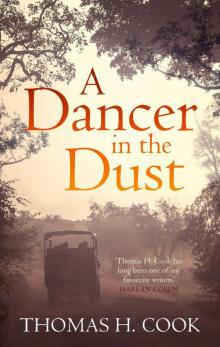 A Dancer In the Dust
A Dancer In the Dust Breakheart Hill
Breakheart Hill The Chatham School Affair
The Chatham School Affair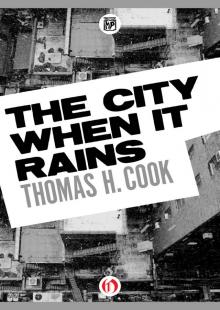 The City When It Rains
The City When It Rains Blood Echoes
Blood Echoes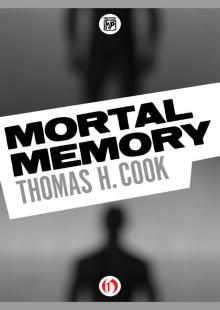 Mortal Memory
Mortal Memory Evidence of Blood
Evidence of Blood Into the Web
Into the Web The Crime of Julian Wells
The Crime of Julian Wells Blood Echoes: The Infamous Alday Mass Murder and Its Aftermath
Blood Echoes: The Infamous Alday Mass Murder and Its Aftermath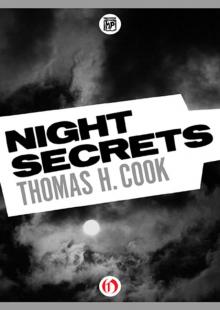 Night Secrets
Night Secrets Places in the Dark
Places in the Dark The Orchids
The Orchids Elena
Elena Streets of Fire
Streets of Fire Instruments of Night
Instruments of Night Sacrificial Ground fc-1
Sacrificial Ground fc-1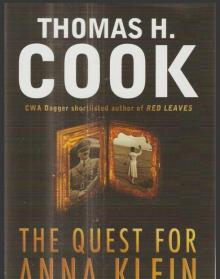 The Quest for Anna Klein
The Quest for Anna Klein Sandrine's Case
Sandrine's Case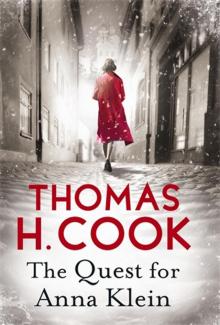 Quest for Anna Klein, The
Quest for Anna Klein, The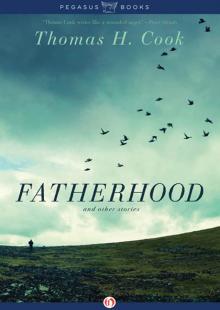 Fatherhood
Fatherhood Flesh and Blood
Flesh and Blood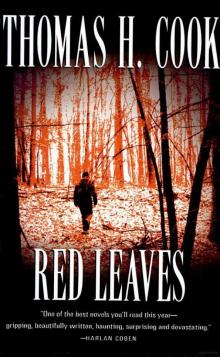 Red Leaves
Red Leaves